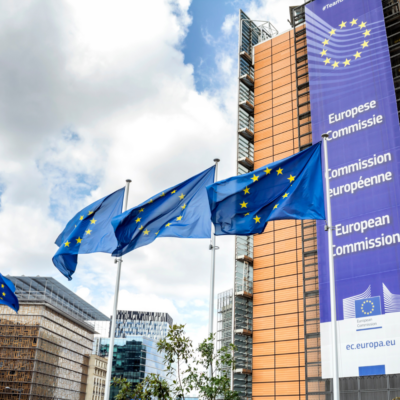02 October 2025
UFE’s reply to the EC call for evidence CBAM – Carbon price paid in a third country

UFE supports the principle underlying the Carbon Border Adjustment Mechanism, as it aims to preserve the competitiveness of European industry and to prevent carbon leakage, in a context of increased climate ambition at European level. However, in the case of electricity imports, UFE has identified two main issues that should be addressed with regard to the carbon price paid in a third country.
First, UFE has been calling for the linking between the EU ETS and the UK ETS. Without a proper partnership, the implementation of CBAM on electricity imports from Great Britain would lead to several negative consequences. For instance, electricity contracts have already been concluded on futures markets, with delivery beyond the start of the final CBAM period (January 2026). The uncertainty related to the lack of visibility on the treatment of the carbon price paid in a third country (delayed secondary legislation) can negatively affect these market horizons, leading to a decrease in liquidity. Linking the EU ETS with the UK ETS is thus essential. Discussions aimed at establishing the coupling of the two systems are crucial to find the right conditions and may take time to get finalised.
Consequently, in order to avoid the negative consequences mentioned above, UFE calls for a temporary mutual suspension of the respective CBAMs between the EU and the UK once the negotiating mandate on the coupling of ETS has been adopted.
In the meantime, it is crucial to replace the yearly average carbon price proposed by the Commission with a daily average price already paid in a third country. This would allow importers into the EU to receive equal treatment compared to EU producers of electricity, ensuring that market participants will have accurate visibility of carbon costs discounted from CBAM for their physical flows of electricity, especially in hours of high renewable generation in the third country.
Moreover, the CBAM is designed to impose the same carbon costs on imported goods as those borne by EU industries for the production of equivalent products. With regard to electricity imports, the mechanism should be flexible and adapt to the regulatory frameworks of third countries.
UFE considers that the level of CBAM applied to electricity imports should be adapted when electricity is imported from a third country using an official carbon pricing system. More concretely, the CBAM taxation level applied to electricity imports should be used as a complement to the carbon price already paid by the exporter in the third country. If the carbon price is higher in the EU than in a third country, the carbon price already paid in the third country should be deducted from the CBAM: only the price difference between the two systems should be paid by the exporter through the CBAM. The carbon price for electricity paid in the third country plus the carbon price for electricity paid while crossing the border would be equivalent to the carbon price paid in the EU through the ETS. This system would respect the principle underlying the CBAM by preserving the competitiveness of European industry, while making sure that economic actors are not prevented from exchanging electricity.
But for this system to be effective, the mutual recognition of carbon pricing should be limited to official systems, using a proper carbon price or carbon taxation mechanism. International carbon credits, which can be bought voluntarily by industrial actors to compensate their CO2 emissions, are not recognised in the EU ETS. Furthermore, the monitoring of these carbon credits is difficult, and the risk of double counting is real providing that a proper and unified credit accounting system is not implemented between the different carbon standards and regulated systems.
Consequently, CBAM should only recognize officially regulated carbon pricing systems, and voluntary offsetting measures such as carbon credits shouldn’t be accounted for when applying the CBAM to electricity imports.
Find out more
06 January 2026
Electrification Action Plan


About us
The Union of the French Electricity Industry is the trade association of the French electricity sector. We bring together companies from the whole value chain of the electricity industry.
Find out more










